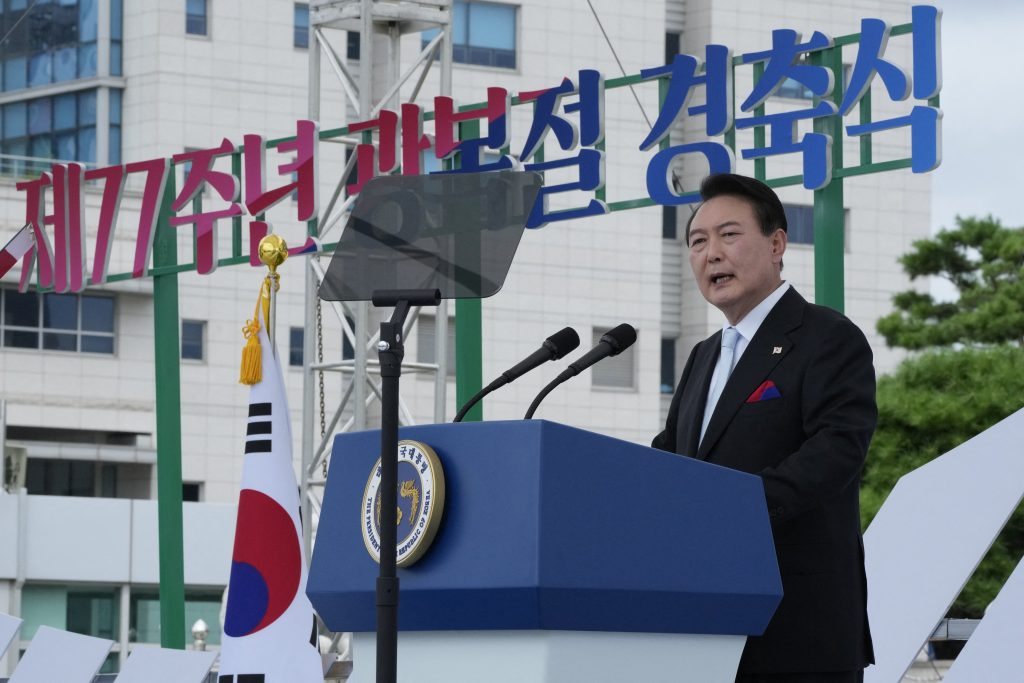
- ARAB NEWS
- 19 Jul 2025

South Korean President Yoon Suk-yeol reiterated his resolve to improve frayed ties between his country and Japan, at a ceremony Monday to mark the 77th anniversary of the liberation of the Korean Peninsula from Japanese colonial rule.
“We must swiftly and properly improve (South) Korea-Japan relations by upholding the spirit” of the 1998 bilateral partnership declaration, signed by then Japanese Prime Minister Keizo Obuchi and then South Korean President Kim Dae-jung, Yoon said in a speech, according to a transcript released by the president’s office.
It was the first time for Yoon, who took office in May this year, to deliver a speech for the liberation day ceremony.
In the 1998 document, Obuchi expressed his “deep remorse and heartfelt apology” for tremendous damage and suffering Japan caused to the people of South Korea through the colonial rule. Meanwhile, Kim voiced his hope for the two countries to build a “future-oriented relationship.”
In the address, Yoon did not touch on pending bilateral problems, such as the issue regarding Koreans who were requisitioned to work for Japanese companies during World War II. A South Korean Supreme Court order for selling seized assets of a Japanese firm involved is increasingly expected to be finalized soon.
While noting that South Korea “had to unshackle” itself from Japan’s colonial rule in the past, Yoon said, “Today, Japan is our partner as we face common threats that challenge the freedom of global citizens.”
“When (South) Korea-Japan relations move toward a common future and when the mission of our times align, based on our shared universal values, it will also help us solve the historical problems that exist between our two countries,” he continued, indicating that the two nations should work on resolving the history issues and realizing future-oriented cooperation at the same time.
The governments and people of South Korea and Japan should contribute to the peace and prosperity of the international community through “extensive cooperation” in various fields, including the economy, security, and social and cultural exchanges, Yoon said.
Yoon proposed an “audacious initiative” to drastically improve North Korea’s economy and the lives of its people in stages if the reclusive country halts its nuclear development program and starts “a genuine and substantive process for denuclearization.”
JIJI Press